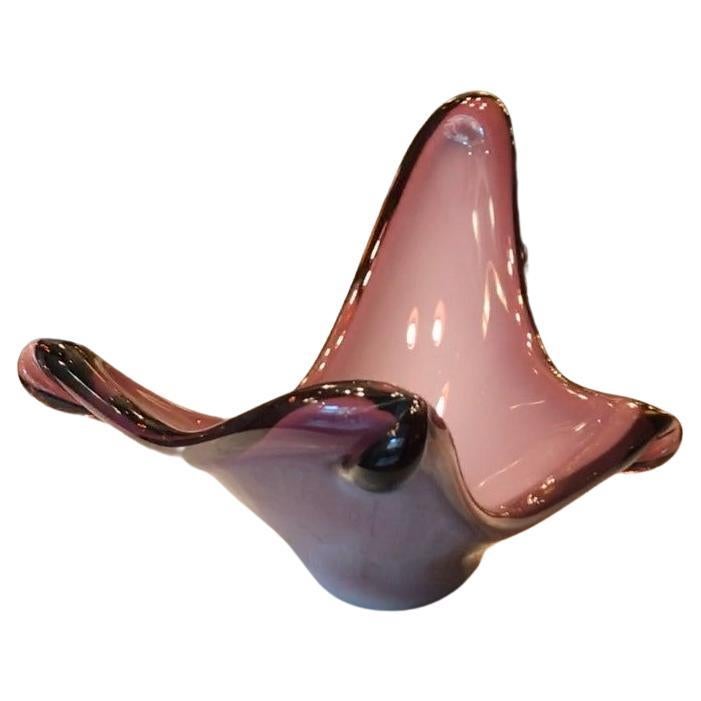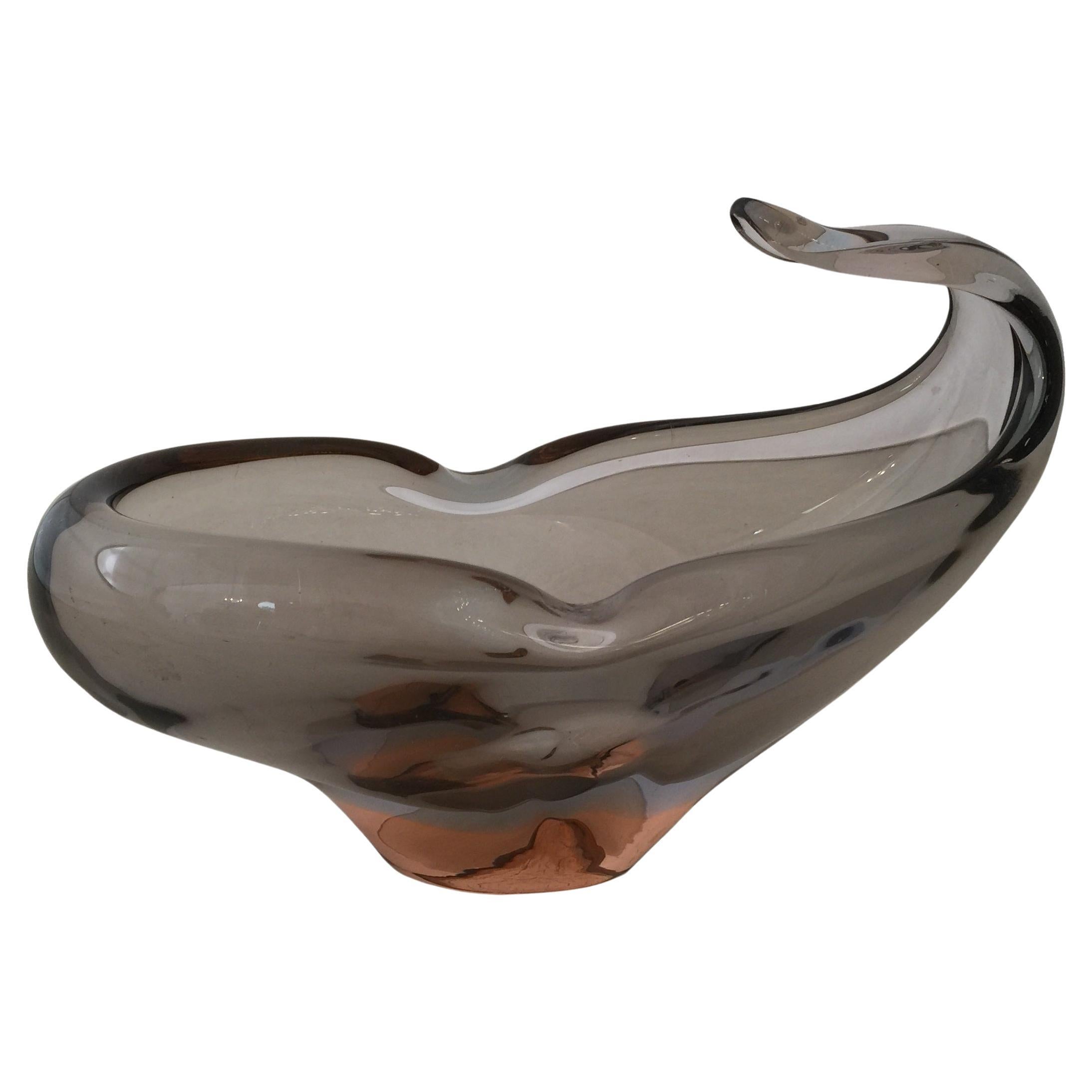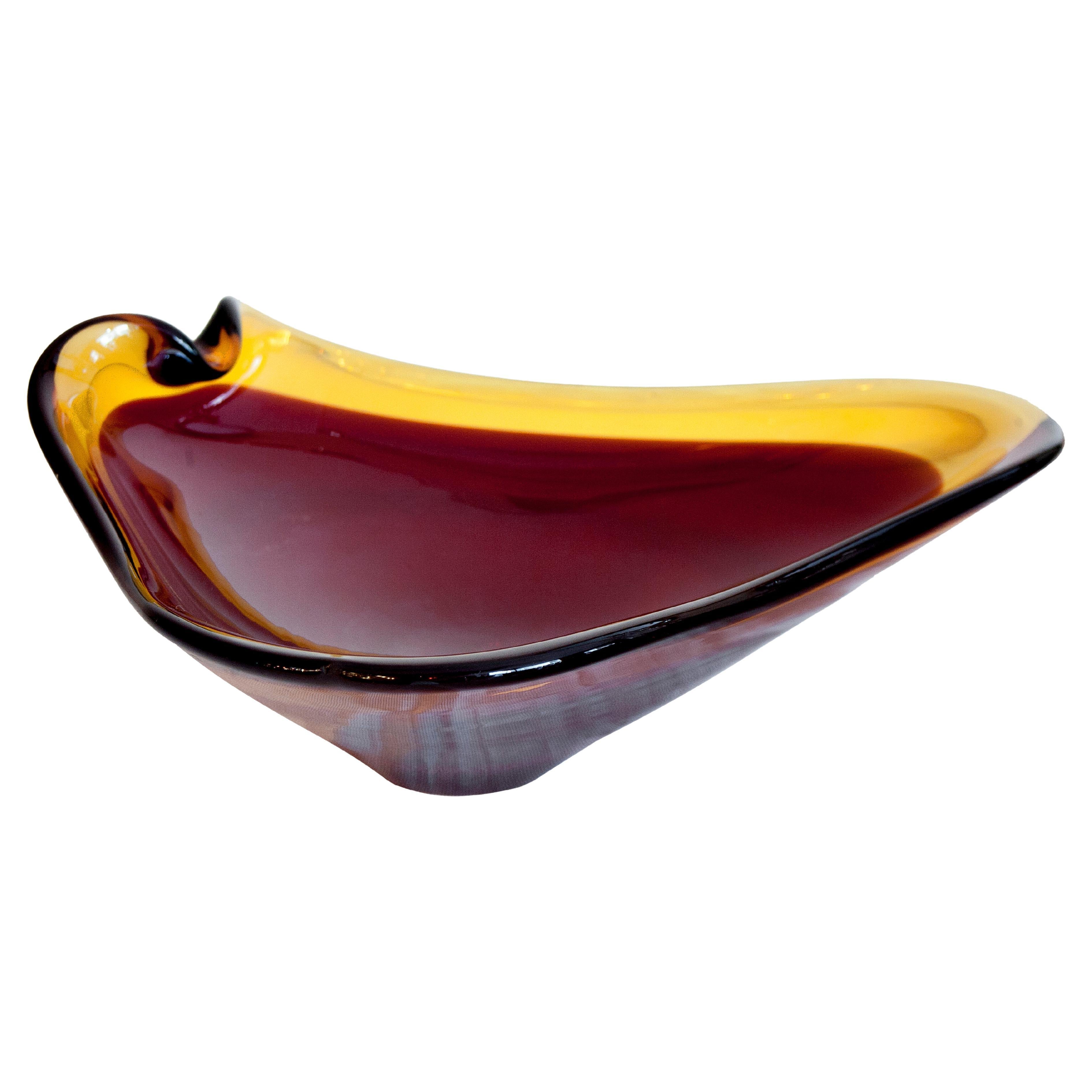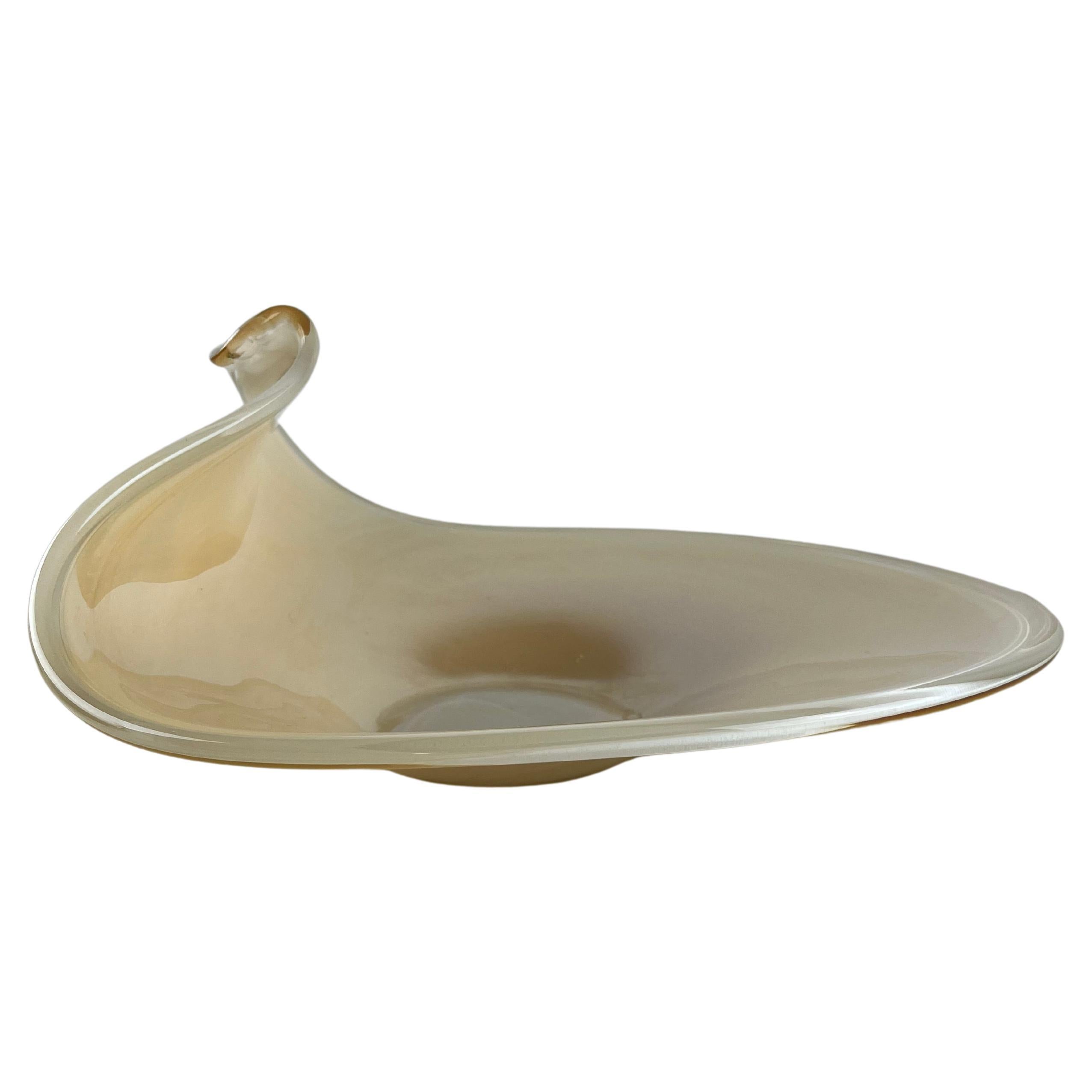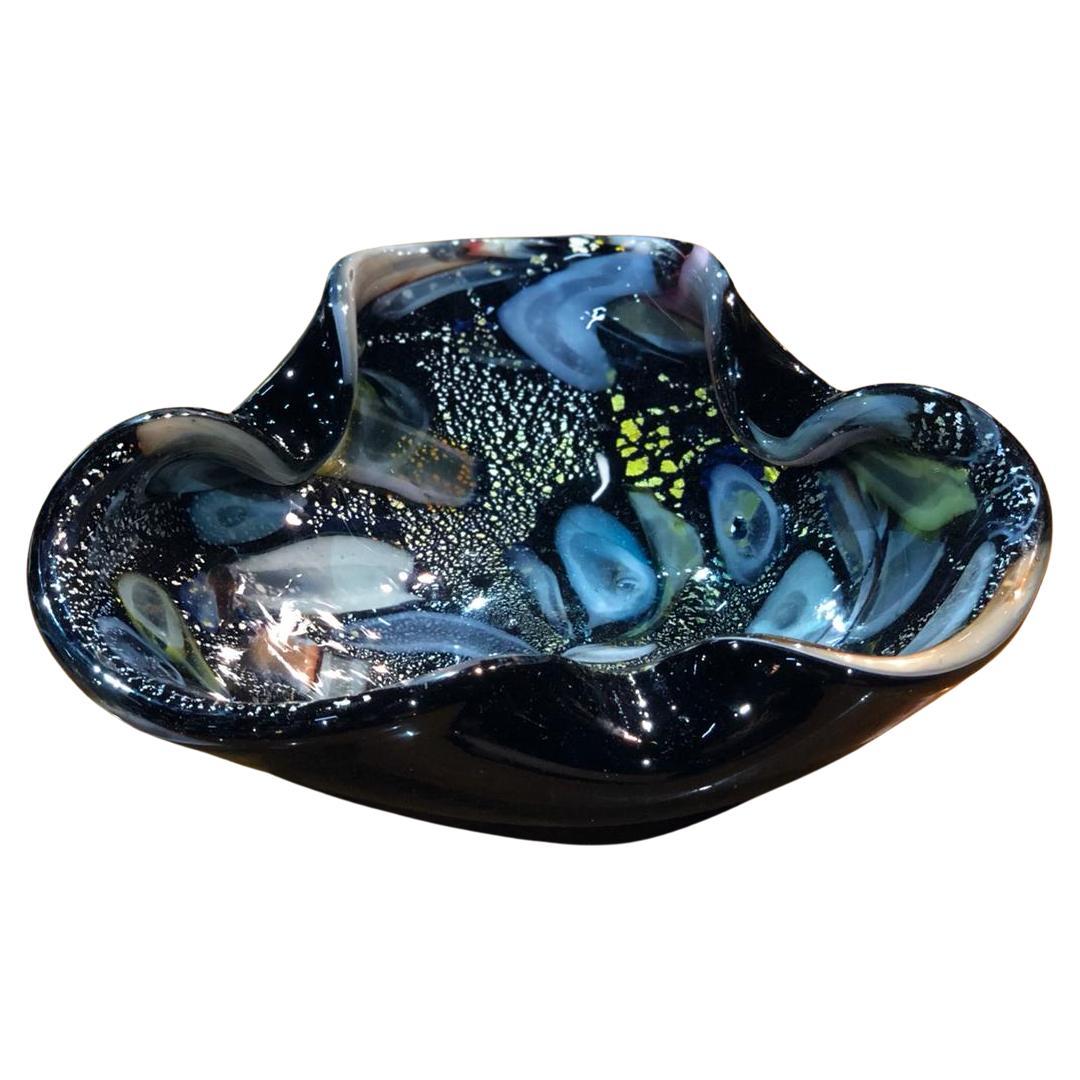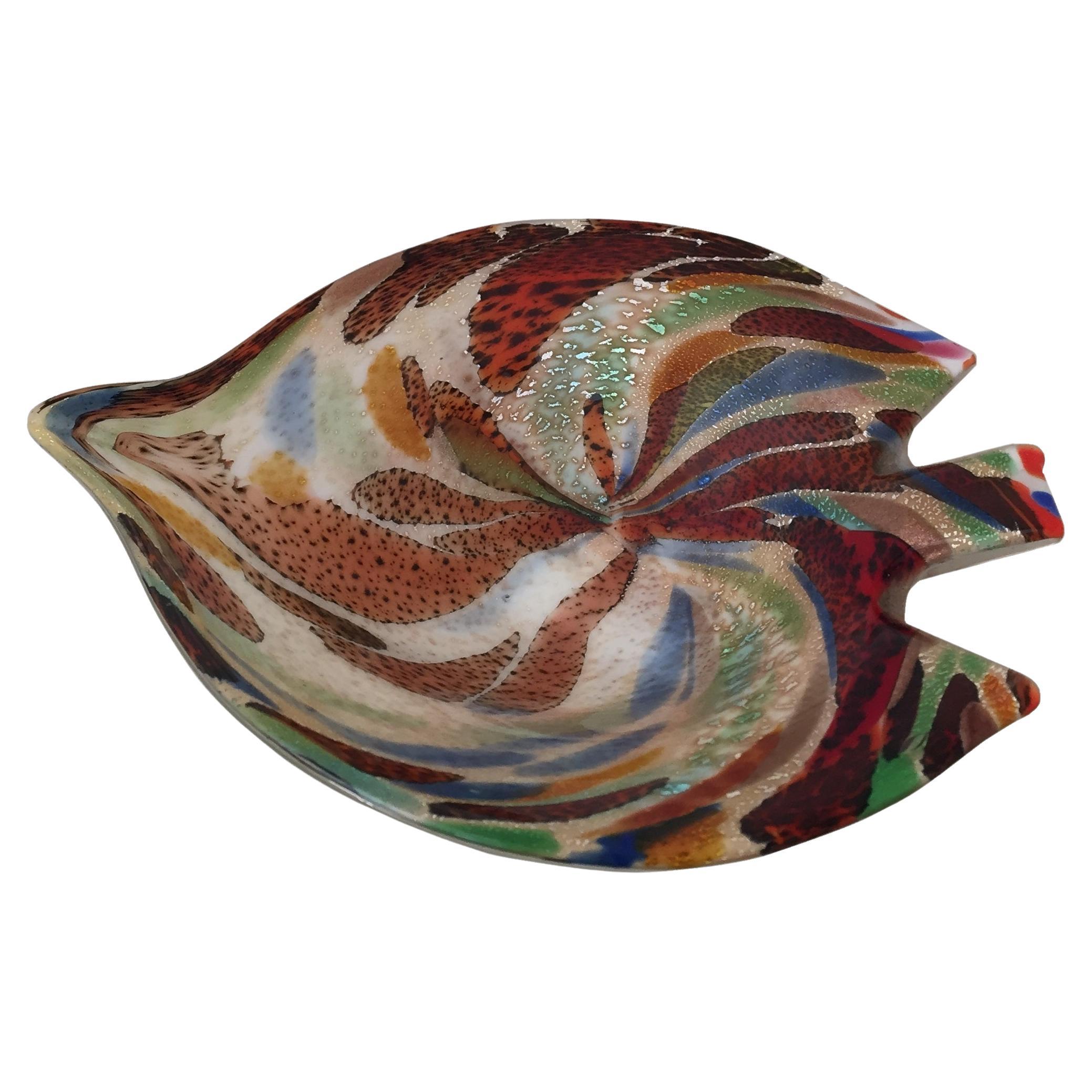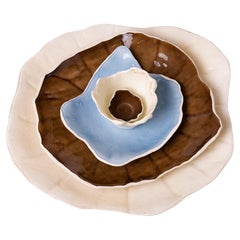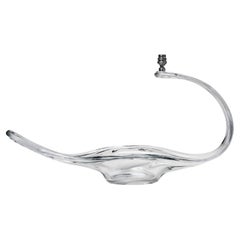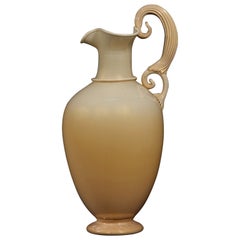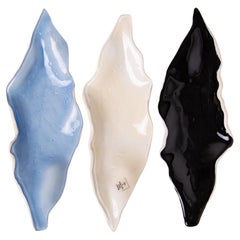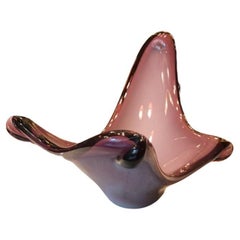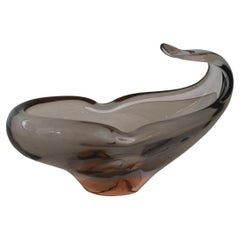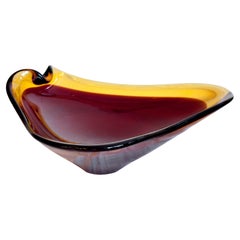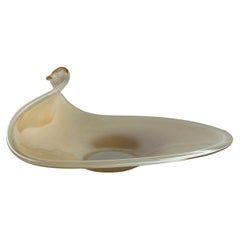Items Similar to Murano Glass Signed Sculpture Rare Centerpiece
Want more images or videos?
Request additional images or videos from the seller
1 of 10
Murano Glass Signed Sculpture Rare Centerpiece
$5,759.68
£4,247.54
€4,800
CA$7,954.07
A$8,727.51
CHF 4,567.57
MX$107,406.05
NOK 57,544.55
SEK 53,899.04
DKK 36,557.90
About the Item
Smart Venetian centerpiece, signed Signoretto and dated 1980 : very important unique piece !
Handles: Two moors black heads with turbans.: it's a true sculpture -
Some photos available when manufacturing process.
O/4808 -
- Creator:Giancarlo Signoretto (Manufacturer)
- Dimensions:Height: 10.63 in (27 cm)Width: 16.54 in (42 cm)Depth: 13.39 in (34 cm)
- Style:Moorish (In the Style Of)
- Materials and Techniques:
- Place of Origin:
- Period:1980-1989
- Date of Manufacture:1980
- Condition:
- Seller Location:Alessandria, IT
- Reference Number:1stDibs: LU137923135202
About the Seller
4.8
Vetted Professional Seller
Every seller passes strict standards for authenticity and reliability
Established in 1984
1stDibs seller since 2015
372 sales on 1stDibs
Typical response time: 10 hours
- ShippingRetrieving quote...Shipping from: Alessandria, Italy
- Return Policy
Authenticity Guarantee
In the unlikely event there’s an issue with an item’s authenticity, contact us within 1 year for a full refund. DetailsMoney-Back Guarantee
If your item is not as described, is damaged in transit, or does not arrive, contact us within 7 days for a full refund. Details24-Hour Cancellation
You have a 24-hour grace period in which to reconsider your purchase, with no questions asked.Vetted Professional Sellers
Our world-class sellers must adhere to strict standards for service and quality, maintaining the integrity of our listings.Price-Match Guarantee
If you find that a seller listed the same item for a lower price elsewhere, we’ll match it.Trusted Global Delivery
Our best-in-class carrier network provides specialized shipping options worldwide, including custom delivery.More From This Seller
View AllVenetian Glass Composition
By Vetrofuso di Daniela Poletti 1
Located in Alessandria, Piemonte
Large Venetian glass composition with beautiful modern colors: perfect as a centerpiece.
Sizes: ivory cm. 58x56xh.6.
brown cm. 45x44 x h.6,5
sky blue cm 32,7x30 x h.5
ivory bowl...
Category
21st Century and Contemporary Italian Other Centerpieces
Materials
Art Glass
$2,159 / set
Murano "Gondole" Rare Glass Table Lamp
Located in Alessandria, Piemonte
Midcentury design for this Murano table lamp, rare unique "gondole" model , very simple, elegant and unusual.
May be used also with fruits as an ornament !...I did so in my galle...
Category
Mid-20th Century Italian Mid-Century Modern Table Lamps
Materials
Murano Glass
Rare Neoclassical Revival Murano Milky Glass Italian Vase, 1950s
Located in Alessandria, Piemonte
Wonderful milky- glass Murano vintage carafe or vase, probably unique piece.
nr. O/3764.
Category
Vintage 1950s Italian Neoclassical Revival Glass
Materials
Murano Glass
$1,511 Sale Price
35% Off
Venetian Glass Bowls
By Vetrofuso di Daniela Poletti 1
Located in Alessandria, Piemonte
Three Venetian glass bowls: blue, black and ivory.
Also see the composition of large glass plates with the same colors.
ref. O/6371.
Category
21st Century and Contemporary Italian Other Glass
Materials
Art Glass
$716 / set
Art Deco Murano Fan Table Lamp
By Vintage Murano Gallery
Located in Alessandria, Piemonte
Unusual Art Deco table lamp from Murano with an interesting price ! Simple and elegant: to set in a sitting room, on a desk, a commode.
There was an order by 1stdibs, but I couldn't ...
Category
Mid-20th Century Italian Art Deco Table Lamps
Materials
Art Glass
Modern Art Italian Ceramic Dish for Wall or Table Centerpiece
By Antonio Zaccarella
Located in Alessandria, Piemonte
Spectacular Italian "ceramic Raku" dish, for wall or table, unique piece, from a private collection
The Raku is a long interesting procedure in very high temperatures and it's very ...
Category
Late 20th Century Italian Other Decorative Dishes and Vide-Poche
Materials
Ceramic
You May Also Like
1930, Italian Murano, Medida
Located in Ciudad Autónoma Buenos Aires, C
Murano
We have specialized in the sale of Art Deco and Art Nouveau and Vintage styles since 1982. If you have any questions we are at your disposal.
Pushing the button that reads 'Vi...
Category
Vintage 1930s Italian Art Deco Centerpieces
Materials
Murano Glass
1930, Italian Murano
Located in Ciudad Autónoma Buenos Aires, C
Murano
We have specialized in the sale of Art Deco and Art Nouveau and Vintage styles since 1982. If you have any questions we are at your disposal.
Pushing the button that reads 'Vi...
Category
Vintage 1930s Italian Art Deco Centerpieces
Materials
Murano Glass
$1,400
Murano, 1940 . Attributed to Seguso - Barovier, Italian
By Barovier Seguso & Ferro
Located in Ciudad Autónoma Buenos Aires, C
Murano
Attributed to Seguso - Barovier
We have specialized in the sale of Art Deco and Art Nouveau and Vintage styles since 1982. If you have any questions we are at your disposal.
Pushing the button that reads 'View All From Seller'. And you can see more objects to the style for sale.
The history of "Seguso Vetri D' Arte" is directly linked to the "Vetreria Artistica Barovier" company. When the Barovier workshop was forced to reduce production in 1929, due to a financial crisis in America, the
original group of ten partners had to separate and Antonio Seguso in 1931, assisted by his sons Ernesto and Archimede opened a small workshop of his own. They were joined by Luigi Olimpio Ferro and Napoleone Barovier the following year. Together the craftsmen establish the "Artistica Soffieria e Vetreria Barovier Seguso & Ferro" company as equal partners.
In 1934 Flavio Poli joins the firm as artistic director and within only a brief period of time a distinct style of designs emerged. The close collaboration between Flavio Poli, Archimede Seguso and Alfredo Barbini played an important part in the success of the company. New glass techniques are developed which include never before seen color applications.
The companies innovative designs constantly received awards and during the 1935 World Fair in Brussels and the 1936 Milan Triennale they did attract the interest of a new group of clientele. One of them is the French wholesale company "Veronese" from Paris which would play a defining role in the history of the company.
The demand for an increase in production requires additional investments and the partners felt that there is a need to multiply their investment tenfold.
Luigi Olimpio Ferro subsequently decided to withdraw from the company and his shares are acquired by Flavio Poli, which makes him a full partner. As a result, the company name is changed to Seguso Vetri D’ Arte and it is officially recognized in 1937. A period of great success and prosperity ensues, lasting until the outbreak of World War II.
The post war period is a time of great change in Europe and the rebuilding of the economical structure in Italy requires major investments which result in the introduction of new import duties and taxes.
To safeguard the copyright of the Seguso Vetri D'Arte designs an application for a second entry into the commercial registers of Venice is made by the partners in 1945.
Strict export regulations curb international business relations for many years after the war and the company decides to focus on the domestic market instead. In 1946 a large retail location is opened at the Piazza Diaz in Milan where in addition to the art glass...
Category
Vintage 1940s Italian Art Deco Centerpieces
Materials
Murano Glass
Murano Glass centerpiece, Italy, 1980s
Located in Palermo, IT
Murano glass centerpiece, Italy, 1980s.
Purchased in Murano by family friends on the occasion of their honeymoon.
Intact, it has a diameter of about 40 cm.
Very elegant, piece of ...
Category
Vintage 1980s Italian Centerpieces
Materials
Glass
$287 Sale Price
31% Off
Murano 1930, Italian, Technical Avventurina
Located in Ciudad Autónoma Buenos Aires, C
Murano.
With silver applications.
We have specialized in the sale of Art Deco and Art Nouveau and Vintage styles since 1982. If you have any questions we are at your disposal.
Pushing the button that reads 'View All From Seller'. And you can see more objects to the style for sale.
Technical Avventurina :
Avventurina is a Murano glass-making technique developed on Murano island in the 17th century. I was first mentioned in a document dating from 1614 as "a kind of stone with gilt stars inside", at which point it already mesmerized people with the unusual and attractive look. The technique owes its name to the fact that its discovery happened by chance thanks to a lucky coincidence, when a glass artisan is said to have accidentally dropped some metal shavings into the glass mixture. Italians say it happened "all'avventura", which in Italian means "by chance".
The first documented recipe for the technique dates from 1644, when Murano master glassmaker Giovanni Darduin described how Avventurina glass should be created. The recipe involves adding various metal oxides such as copper and iron to the hot glass mixture, which will cause tiny particles of the metals to crystallize as the glass mixture cools off.
Complicating the process, for such crystallization to occur the furnace had to get fully extinguished, and the metal particles would slowly separate from the glass base over a few days during the natural cooling of the glass. This was a very difficult process from a logistical perspective, since every time a glass furnace got extinguished it caused work to be paused, and re-igniting it was quite a big process, as it took time to fully heat it to the desired temperature.
As industrial revolution set foot on Murano in the nineteenth century, the process got a remake. Large volumes of fine Avventurina paste were made and then skillfully stretched into glass canes, which were then re-melted for jewelry-making under a small flame, or for glass blowing. This Avventurina paste received worldwide acclaim and re-ignited the fame of Murano Glass workshops due to its use in Salviati mosaics...
Category
Vintage 1930s Italian Art Deco Centerpieces
Materials
Silver, Gold
Murano, 1930, Italian, Attributed to Fratelli Toso Technical Avventurina
By Fratelli Toso
Located in Ciudad Autónoma Buenos Aires, C
Murano
Technical Avventurina :
We have specialized in the sale of Art Deco and Art Nouveau and Vintage styles since 1982. If you have any questions we are at your disposal.
Pushing the button that reads 'View All From Seller'. And you can see more objects to the style for sale.
Fratelli Toso, Venice
One of the oldest glass factories established in Murano, Fratelli Toso was founded in 1854 by six brothers who loved the art of glassmaking. With over 150 years of experience in the field, the Toso family improved their techniques and nowadays are one of the top award-winning manufacturers of Murano glass.
Technical Avventurina :
Avventurina is a Murano glass-making technique developed on Murano island in the 17th century. I was first mentioned in a document dating from 1614 as "a kind of stone with gilt stars inside", at which point it already mesmerized people with the unusual and attractive look. The technique owes its name to the fact that its discovery happened by chance thanks to a lucky coincidence, when a glass artisan is said to have accidentally dropped some metal shavings into the glass mixture. Italians say it happened "all'avventura", which in Italian means "by chance".
The first documented recipe for the technique dates from 1644, when Murano master glassmaker Giovanni Darduin described how Avventurina glass should be created. The recipe involves adding various metal oxides such as copper and iron to the hot glass mixture, which will cause tiny particles of the metals to crystallize as the glass mixture cools off.
Complicating the process, for such crystallization to occur the furnace had to get fully extinguished, and the metal particles would slowly separate from the glass base over a few days during the natural cooling of the glass. This was a very difficult process from a logistical perspective, since every time a glass furnace got extinguished it caused work to be paused, and re-igniting it was quite a big process, as it took time to fully heat it to the desired temperature.
As industrial revolution set foot on Murano in the nineteenth century, the process got a remake. Large volumes of fine Avventurina paste were made and then skillfully stretched into glass canes, which were then re-melted for jewelry-making under a small flame, or for glass blowing. This Avventurina paste received worldwide acclaim and re-ignited the fame of Murano Glass workshops due to its use in Salviati mosaics...
Category
Vintage 1930s Italian Art Deco Centerpieces
Materials
Murano Glass
More Ways To Browse
Maurice Grosser
Prunt Glass
Red Champagne Glasses
Salviati Goblets
Sasso Glass
Scandinavian Blue Glass Plates
Swedish Carafes
Venetian Wine Glass
Vintage Champagne Coupes Set Of 4
Vintage Finger Bowls
American Brilliant Cut Glass Bowl
Aurene Gold
Champagne Decanter
Cloche Dome
Cobalt Silver Overlay
Compote Set
Cranberry Glass Jug
Cranberry Jug
